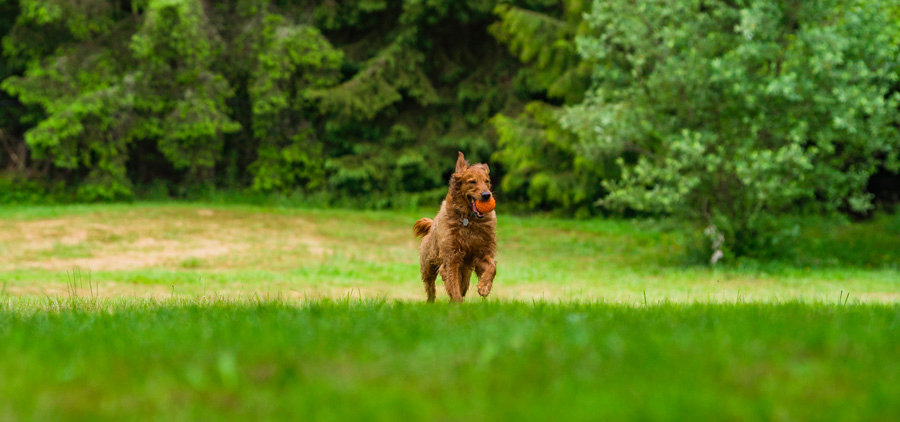Fun Facts About German Shorthaired Pointers

Discover the German Shorthaired Pointer, a breed celebrated for its playful, affectionate, and trainable nature. Recognized as a large dog, German Shorthaired Pointers have their origins in Germany, where they were initially bred for hunting starting in the late 19th century.
In this post, we share insights from nearly 10,000 Sniffspot users, offering practical advice for new and prospective German Shorthaired Pointer owners. Whether you’re considering adopting or rescuing a German Shorthaired Pointer or already have one, you’ll find valuable tips on how to care for and enjoy life with a playful German Shorthaired Pointer.
Ruger the German Shorthaired Pointer loves to swim and please his owners. He's also super playful! Sound like your kind of dog? GSPs are energetic, affectionate, and intelligent, but they need dedicated owners. Thinking about getting a GSP? This guide covers fun facts about German Shorthaired Pointers, breed history, and practical advice on exercise, training, and health. We'll help you decide if you're ready to welcome a GSP into your life.

Source: Sniffspot Community Breed Survey 2024
German Shorthaired Pointer: Quick Facts
- Breed Type: Hunting
- Size: Large
- Life Expectancy: 10 – 14 years
- Healthy Weight Range: 45 – 70 lbs
- Height Range: 21 – 25 inches
- Temperament: Playful, Affectionate, Trainable
- Coat Type: Short
- Color: liver, liver and white, black, black and white
Getting to Know the German Shorthaired Pointer
According to nearly 10,000 Sniffspot community users who shared real-world data about their German Shorthaired Pointer, we learned that these dogs are playful and affectionate. The German Shorthaired Pointer is also known to be very friendly and social with children and cautious around new pets.
When living with a GSP, 81% of our owners indicated that a large house with a fenced yard is ideal. Additionally, 52% of owners found that a rural or suburban area with open spaces is also acceptable. This dog is highly trainable by all types of dog owners and owners say that the German Shorthaired Pointer learns best with positive reinforcement, training aids, and consistent routines.
In terms of exercise, 58% of Sniffspot owners say their German Shorthaired Pointer benefits from high exercise every day, including over 2+ hours of activity a day, including walks, runs, and play sessions. The Sniffspot GSP community would not recommend this dog for first-time owners due to its high energy needs.
Key Takeaways
- GSPs thrive on activity: These playful, affectionate dogs need a lot of exercise (over two hours daily) and mental stimulation. Think big backyards, dog parks, and plenty of playtime.
- Training is key: GSPs are smart and eager to please, which makes training relatively easy using positive reinforcement. Early socialization is important, especially with other animals.
- Experienced owners are best: GSPs might not be the best fit for a first-time dog owner because of their high energy and demanding exercise needs. Consider your lifestyle and living situation carefully.
Origins of the German Shorthaired Pointer
The German Shorthaired Pointer (GSP) is a versatile and intelligent breed with a history deeply rooted in hunting. Originating in Germany during the late 19th century, this breed was developed through the careful crossbreeding of various pointers, hounds, and other hunting dogs. The goal was to create a dog that excelled in both pointing and retrieving game, making it a valuable asset for hunters.
Initially bred to assist in hunting both upland game and waterfowl, the GSP quickly gained a reputation for its remarkable versatility and endurance. Its ability to track and flush game, combined with its agility and strong scenting skills, made it an ideal companion for hunters across Europe.
By the early 20th century, the German Shorthaired Pointer began to gain recognition beyond its homeland. Its popularity spread to the United States and other parts of the world, where it continued to impress with its adaptability and strong work ethic. Despite its transition from a hunting dog to a family companion, the GSP retained its inherent drive and enthusiasm for physical activity.
Today, the German Shorthaired Pointer is cherished not only for its hunting prowess but also for its friendly and energetic nature. It thrives in active households and remains a symbol of the successful melding of function and companionship, reflecting the breed’s enduring legacy as both a working dog and a beloved family pet.
Key GSP Traits and Characteristics
- Temperament: Playful, Affectionate, Trainable
- Energy Level: High
- Trainability: Highly trainable – Learns commands quickly and responds well to training.
- Grooming needs: Low maintenance – Requires minimal grooming, such as occasional brushing and baths.
- Good with Kids: Very friendly and social with children
- Good with Other Pets: Cautious around new pets
The Energetic and Affectionate GSP
German Shorthaired Pointers are known for their playful and affectionate personalities. They thrive in active households and form strong bonds with their families. As Sniffspot user Ruger shared, “He loves to swim and please his owners. Very playful!” This sentiment reflects the findings of the Sniffspot Community Breed Survey 2024, which highlighted the breed's friendly and energetic nature. They are generally social with children and approach new pets with a bit of caution, making them wonderful family dogs for those prepared to meet their exercise needs.
And speaking of exercise, these dogs need plenty of it! Our survey revealed that 58% of GSP owners report their dogs need over two hours of activity daily, including walks, runs, and engaging play. This high energy level is something to consider if you're thinking of welcoming a GSP into your life. Finding ways to keep them both physically and mentally stimulated is key to a happy, well-behaved GSP. A visit to a Sniffspot dog park offers a great way to let your GSP run and play freely in a safe and enriching environment.
Intelligence and Trainability
GSPs are intelligent dogs, eager to please their owners, which makes them highly trainable. The Sniffspot Community Breed Survey 2024 confirmed this, with owners reporting success using positive reinforcement, training aids, and consistent routines. This aligns with expert advice from the American Kennel Club, which emphasizes the importance of early and consistent training to manage their energy and prey drive. Resources like Wisdom Panel also note their intelligence and trainability as key breed characteristics.
While their intelligence makes training relatively straightforward, it's important to start early and maintain consistency. This helps establish good habits and prevents potential behavioral issues that can arise from boredom or excess energy. Engaging their minds with activities like puzzle toys and obedience training, in addition to physical exercise, is crucial for a well-rounded and happy GSP. For guidance on training techniques and finding a professional near you, check out our resources on top dog trainers.
Life With a German Shorthaired Pointer: What to Expect
As a German Shorthaired Pointer owner, it’s important to know the best dog breed tips and what to expect from current German Shorthaired Pointer owners.

Source: Sniffspot Community Breed Research 2024
Finding the Right Environment for a GSP
Given their energetic nature and need for ample space, German Shorthaired Pointers thrive in specific environments. Let's explore the ideal living situations for these active pups.City Living Considerations
While GSPs are adaptable, city living presents unique challenges. A whopping 81% of GSP owners on Sniffspot recommend a large house with a fenced yard as the ideal setup. Apartment living can be tricky due to their high energy levels and need for regular exercise. If you live in a city and are considering a GSP, ensure you have access to dog parks or other safe, enclosed areas where your dog can run and play freely. Remember, GSPs require at least two hours of exercise daily. This can be a significant commitment for city dwellers with busy schedules. Consider incorporating activities like running, hiking, or even dog-friendly water activities into your routine. Finding creative ways to meet their exercise needs is crucial for city dwellers.Suburban and Rural Environments
Suburban and rural settings often provide a more suitable environment for GSPs. With 52% of Sniffspot owners finding these areas acceptable, the access to open spaces and larger properties allows these dogs the freedom to roam and explore. A securely fenced yard is still essential, as GSPs have a strong prey drive and may be tempted to chase after small animals. The quieter environment of the suburbs or countryside can also be beneficial for a GSP's overall well-being. Even in these settings, ensure they receive adequate exercise and mental stimulation. Consider exploring nearby hiking trails or enrolling your GSP in dog sports like agility or flyball to keep them engaged and happy. If you're looking for safe and enriching spaces, check out Sniffspot's listings for dog parks and other dog-friendly locations.GSP Grooming Guide
German Shorthaired Pointer dogs require low-maintenance grooming. This means German Shorthaired Pointer owners should expect minimal grooming, like occasional brushing and baths. German Shorthaired Pointer dogs have a short coat, which is ideal for protection from weather. Their short coat is considered moderate shed.
To keep your German Shorthaired Pointer’s coat healthy and up to breed standards, include brushing in your daily routine. Of the coat types for common breeds in the hunting group, the grooming needs for the German Shorthaired Pointer are considered low maintenance.
Exercise Essentials for Your GSP
German Shorthaired Pointers require high activity each day. Though one of the most popular dog breeds, GSPs are considered a very athletic, high-energy breed. GSPs make great pets and thrive with over 2+ hours of activity a day, including walks, runs, and play sessions. Owners of GSPs report their dogs especially love playing with squeaky toys, hiking, and hiking.
When large breeds like GSPs don’t get sufficient exercise, they’re more likely to act out with undesirable behaviors like high energy. They need consistent training, mental activity, and regular exercise to avoid excess energy.
Feeding Your GSP: Diet and Nutrition
What should you feed your German Shorthaired Pointer to keep them healthy? As a high-energy breed, what you feed them is important. A reported 78% of our community feed their GSP commercial dry kibble.
With high exercise, GSPs should eat 3 – 4 cups daily of vet-recommended food to maintain a healthy weight of around 45 – 70 lbs. However, your German Shorthaired Pointer’s ideal weight and food depend on your pet’s sex, activity level, and age.
German Shorthaired Pointer Health: What to Watch For
The German Shorthaired Pointer breed is most prone to skin conditions (e.g., allergies, dermatitis) and digestive issues (e.g., bloating, sensitive stomach). A reported 27% of our German Shorthaired Pointer owners reported skin conditions like allergies, yeast infections, impetigo, ringworm, alopecia, and folliculitis. GSPs’ risk for these challenges increases as they age.
Similarly, 24% reported digestive issues like constipation, diarrhea, vomiting, and lack of appetite. Lastly, 15% of German Shorthaired Pointer owners claim their dog struggles with joint problems like arthritis, elbow dysplasia, degenerative issues, and osteosarcoma — a common GSP health concern. If you’re worried about any of these health issues above, talk to your GSP’s vet.
Genetic Health Concerns and DNA Testing
The German Shorthaired Pointer breed is prone to specific health concerns, making proactive care essential. Skin conditions like allergies and dermatitis are common. In fact, 27% of GSP owners reported these issues, including allergies, yeast infections, impetigo, ringworm, alopecia, and folliculitis, in our Sniffspot Community Breed Research 2024. The risk for these conditions increases as your GSP ages. DNA testing can be a valuable tool to identify potential genetic predispositions, allowing for early intervention and preventative measures.
Bloat and Digestive Health
Digestive issues are another concern for GSPs. Our research shows that 24% of owners reported problems such as constipation, diarrhea, vomiting, and lack of appetite. Bloat, in particular, is a serious and potentially life-threatening condition requiring immediate veterinary attention. The American Kennel Club recommends avoiding strenuous activity for an hour before and after meals to help prevent bloat. Feeding your GSP at night, after they’ve settled down, is also a good preventative measure. Consult your veterinarian promptly if you notice any signs of digestive distress.
Beyond skin and digestive problems, 15% of GSP owners in the Sniffspot community reported joint problems. These included arthritis, elbow dysplasia, degenerative issues, and osteosarcoma. While these may not always be preventable, early diagnosis and appropriate management can significantly improve your dog's quality of life. Regular checkups with your vet are crucial for early diagnosis and to discuss appropriate treatment options.
Are German Shorthaired Pointers Friendly?
Another important thing to consider when adopting a GSP is whether or not they fit with your current family. How friendly are German Shorthaired Pointers compared to other large-sized breeds?

Source: Sniffspot Community Breed Survey 2024
With consistent training, you can hone your GSP’s hunting instinct into a playful and affectionate family dog. Introducing your pet to positive reinforcement (treats, praise, rewards) and use of training aids (e.g., harnesses, leashes, training collars) early helps them avoid undesirable behaviors like high energy. Our community German Shorthaired Pointer owners comment on their pet’s friendliness:
- I love how energetic he is, but once he’s tired he’s the most affectionate love bug I’ve ever had! He’s so sweet and although guarded, he’s very good with strangers once he greets them. (Allie )
- They’re always happy and everything is exciting/fun for them. You can always count on them to put a smile on your face. (MR)
- Velcro dog follows you everywhere super affectionate and loyal. (Jackie)
Interactions with Strangers and Other Dogs
German Shorthaired Pointers are generally friendly and social dogs. While their hunting background might suggest otherwise, with proper training and socialization, GSPs can become well-adjusted companions who enjoy the company of both people and other animals. Early and consistent socialization is key. Introducing your GSP to a variety of people, places, and situations from puppyhood will help them develop into confident and well-behaved adults. This includes positive interactions with strangers, helping your GSP learn to greet new people politely rather than with excessive exuberance or fear.
When it comes to other dogs, GSPs can be a bit more cautious. While many GSPs enjoy the company of other canine companions, especially if they've been raised together, their prey drive can sometimes be triggered by smaller animals. Careful introductions and supervised playdates are essential, particularly with dogs they haven't met before. Positive reinforcement training can help redirect any unwanted behaviors and encourage appropriate interactions. Remember, even with the friendliest GSP, it's always wise to supervise interactions with other animals, especially in new or unfamiliar environments.
GSPs and Children
The German Shorthaired Pointer is known for its affectionate and playful nature, often making them wonderful companions for children. They are generally very friendly and social with kids, enjoying playtime and forming strong bonds. However, it's important to remember that GSPs are also high-energy dogs. Their exuberance, while often endearing, can sometimes be overwhelming for very young children (typically under 7). Accidental bumps or knocks during playtime are a possibility, so supervision is always recommended, especially with toddlers.
Teaching children how to interact respectfully with dogs is crucial for a harmonious household. This includes understanding dog body language and avoiding behaviors that might frighten or provoke the dog. With proper guidance, children can learn to be responsible and loving companions for their GSP, fostering a mutually beneficial relationship built on respect and affection. Creating a safe and enriching environment for both your children and your GSP is key. Resources on dog enrichment can offer valuable insights into fostering positive interactions. A well-trained and socialized GSP can be a fantastic addition to a family with children, bringing joy and activity to everyone's lives.
Training Your German Shorthaired Pointer
Whether you’re adopting a GSP puppy or an adult German Shorthaired Pointer, training is a significant part of owning a large-sized breed. Without proper training, your GSP is more likely to display undesirable behaviors such as high energy. Providing stimulating activities is a great first step, but this needs to be paired with the right training for your GSP.
As a hunting breed, German Shorthaired Pointers benefit from praise and positive reinforcement. Here’s what our GSP community recommended based on their experience with their own dogs:
- Positive Reinforcement (93%): This includes treats, praise, rewards, and so on for positive behavior
- Training Aids (67%): Dog training aids like martingale collars, walking harnesses, and no-pull attachments
- Consistent Routines (54%): A consistent training routine allows your pet to get comfortable with expectations
As dogs bred for hunting, GSPs are considered highly trainable by all types of dog owners.

Harnessing Their Eagerness to Please
German Shorthaired Pointers have a natural desire to please their owners, making them highly receptive to positive reinforcement. They thrive on praise and rewards, and this eagerness to learn makes training a rewarding experience. Our Sniffspot Community Breed Research shows that 93% of GSP owners recommend positive reinforcement techniques like treats, praise, and rewards for effective training.
Because of their intelligence and eagerness to please, GSPs respond well to consistent routines and clear expectations. While they may occasionally test boundaries—they are energetic and intelligent, after all—patience and positive reinforcement will help you build a strong bond and a well-behaved companion.
Channeling Their Energy and Drive
Bred for long days of hunting, German Shorthaired Pointers are energetic dogs who need plenty of exercise. Our Sniffspot Community Breed Research suggests that GSPs thrive with over two hours of daily activity, including walks, runs, play sessions, and mentally stimulating activities like scent work or a visit to a local Sniffspot.
Without enough exercise, a GSP's natural energy can lead to unwanted behaviors like restlessness, destructiveness, or excessive barking. Consistent training, mental enrichment, and regular physical activity are key to channeling their energy positively. A tired GSP is a happy GSP, and providing outlets for their energy contributes to both their physical and mental well-being, creating a more harmonious home.
Why GSP Owners Adore Their Dogs
We asked Sniffspot GSP owners what they love the most about their German Shorthaired Pointer pups, and here’s what they had to say:
- They are one of a kind and have the perfect temperament for kids and other animals. (Talcy)
- He’s goofy. Very playful and energetic with a bit of a personality. (Mikayla)
- His curiosity is endless. He’s always interested in seeing what is going on in his world. (Olivia)
Challenges of GSP Ownership
Similarly, GSP owners share some of the biggest challenges of living with their German Shorthaired Pointer:
- Very energetic, and this is the only thing I would warn a first-time dog owner. Sniffspot has been the best thing to help get his energy out as we don’t have a yard for him to run in, and just playing with toys will not tucker him out. If he’s not properly exercised he will act out. (Allie )
- This breed needs a lot of exercise and mental stimulation. (Laura )
- My GSP’s challenges include his constant “go go go” attitude. I have to remind myself that just because he isn’t stopping, doesn’t mean that he should keep going. Sometimes it’s up to me to remind him to take a break, catch his breath, and not run into trees. (Sami)
GSPs and First-Time Owners: A Good Fit?

Source: Sniffspot 2024 Community Dog Breed Survey
According to 81% of our Sniffspot community, German Shorthaired Pointers are not great first-time dogs to own. This comes from their playful nature and high exercise needs. German Shorthaired Pointer owners say it best:
- Puppy and adolescent dogs can be very destructive. Must have daily exercise and brain exercises. Can and will be very destructive if left unsupervised and bored. (SL)
- He can be very stubborn and needs to play multiple times a day to the point he’s close to death. (Olivia)
- This dog is hyper. Think hound dog but on steroids with the drive of an Olympic runner. (Jackie)
Assessing Your Lifestyle and Experience
Before bringing a German Shorthaired Pointer into your life, honestly assess your lifestyle and experience. A GSP’s playful energy and exuberance require a dedicated owner who can meet their needs. As one Sniffspot user vividly puts it, “This dog is hyper. Think hound dog but on steroids with the drive of an Olympic runner.” This playful nature, while endearing, translates into a significant time commitment.
Consider your living situation. Do you have a secure space where your GSP can safely run and play? A large, fenced yard is ideal, but access to dog parks or other safe, open areas can also work. Think about your daily schedule. Can you commit to providing the necessary exercise and mental stimulation a GSP requires? Remember, these dogs thrive on activity. As 81% of our Sniffspot community points out, German Shorthaired Pointers are not the best choice for first-time dog owners due to their high energy levels and demanding exercise needs. If you’re new to dog ownership, a less demanding breed might be a better fit. You can explore other breeds and their suitability for first-time owners on Sniffspot.
Finally, consider the potential for destruction if your GSP’s needs aren’t met. “Puppy and adolescent dogs can be very destructive,” shares one Sniffspot user. “Must have daily exercise and brain exercises. Can and will be very destructive if left unsupervised and bored.” This isn’t meant to discourage you, but rather to prepare you for the realities of GSP ownership. With proper planning and commitment, the challenges can be managed, and the rewards of GSP companionship are immense.
Providing Ample Exercise and Enrichment
German Shorthaired Pointers are energetic athletes. They need much more than a quick walk around the block. “GSPs require high activity each day,” confirms our Sniffspot Community Breed Research. “Though one of the most popular dog breeds, GSPs are considered a very athletic, high-energy breed.” Plan for at least two hours of activity daily, including brisk walks, runs, and engaging play sessions. Sniffspot listings can be a great resource for finding safe and stimulating environments for your GSP to explore and burn off energy. Check out our resources on dog names and top dog trainers for additional support.
Beyond physical exercise, mental enrichment is crucial for a happy and well-behaved GSP. These intelligent dogs thrive on challenges and activities that engage their minds. Puzzle toys, training sessions, and even learning new tricks can help keep them mentally stimulated. One Sniffspot user emphasizes the importance of frequent play, noting, “He can be very stubborn and needs to play multiple times a day.” This highlights the GSP’s inherent drive and the need for regular outlets for their energy. Consider exploring dog water parks for a fun and refreshing activity.
Remember, a tired GSP is a happy GSP. By providing ample exercise and enrichment, you’ll not only fulfill your dog’s needs but also prevent undesirable behaviors that can arise from boredom and excess energy. “They need consistent training, mental activity, and regular exercise to avoid excess energy,” advises our Sniffspot community. Investing time and effort in these areas will strengthen your bond with your GSP and ensure a fulfilling life together.
Tips for German Shorthaired Pointer Owners
Luckily, our Sniffspot community is full of experienced, trustworthy GSP owners. These German Shorthaired Pointer breed owners share the most essential dog breed tips and advice for prospective or new dog owners:
Creating a Safe and Stimulating Environment
Given their energetic nature, German Shorthaired Pointers thrive in environments that cater to their need for both physical and mental stimulation. As we learned from our Sniffspot community survey, 81% of GSP owners find a large house with a fenced yard ideal. This provides a safe space for these active dogs to run and play freely. A rural or suburban setting with access to open spaces, preferred by 52% of owners, also offers excellent opportunities for exploration and adventure. A cramped apartment in a bustling city might not be the best fit for their needs. Think wide open spaces and plenty of room to roam.
Beyond physical space, mental enrichment is crucial for a happy and well-adjusted GSP. These intelligent dogs excel with positive reinforcement training, using training aids, and consistent routines. Puzzle toys, interactive games, and regular training sessions can help keep their minds engaged and prevent boredom-related behaviors. Check out our resources on dog training and dog enrichment for some great ideas.
Utilizing Sniffspot for Exercise and Socialization
German Shorthaired Pointers require a significant amount of exercise—think two-plus hours a day! This can include walks, runs, or engaging play sessions. Sniffspot can be a fantastic resource for GSP owners looking to provide their dogs with varied and stimulating exercise experiences. Our community of GSP owners told us their dogs particularly enjoy playing with squeaky toys, hiking, and more hiking! Finding safe and enriching spaces for your GSP to burn off energy is key to a happy and well-behaved pup.
Discover Dog Parks Near You
If you don't have a large yard, or simply want to offer your GSP a change of scenery, Sniffspot offers a unique solution. With our network of private dog parks, you can find secure and stimulating environments for your GSP to run, play, and socialize. As one Sniffspot user shared, "Sniffspot has been the best thing to help get his energy out as we don’t have a yard for him to run in, and just playing with toys will not tucker him out." Discover dog parks near you and give your GSP the space they need to thrive.
Explore Dog-Friendly Hiking Trails
For the adventurous GSP and owner, hiking is a fantastic way to combine exercise with exploration. These energetic dogs love to explore new trails and enjoy the physical challenge. Remember that one GSP owner's warning: "This breed needs a lot of exercise and mental stimulation." Hiking provides both. Many Sniffspot hosts offer access to private trails and natural areas, providing a safe and controlled environment for your GSP to explore.
Find Indoor Dog Parks
Weather got you down? Indoor dog parks offer a great alternative for GSPs to get their energy out, especially during inclement weather. These spaces provide a controlled environment for play and socialization, regardless of the conditions outside. While stimulating activities are essential, remember that training is equally important. As one user noted, "Providing stimulating activities is a great first step, but this needs to be paired with the right training for your GSP." Combine indoor play with consistent training for a well-rounded approach to your GSP's well-being.
Know Your Breed: GSP Research
- People will choose this dog because of its beauty but they need to be aware of what they’re getting into in terms of time commitment. These dogs are great family dogs, very reliable, not aggressive, smart, and entertaining. (JD)
- You NEED to lead an active lifestyle. (Laura )
The Active Life of a GSP Owner
- They need lots of time to just run and splash and chase and can carry on for HOURS!! But once inside, they are lazy as all get out. (BlaundNordic )
- Have an active lifestyle and make sure you have time in your day to exercise the dog! (Breanna)
Give Your GSP a Job to Do
- This dog needs a job and someone experienced with training and who uses positive reinforcement as they are very sensitive and don’t respond well to negative corrections. They also need hours of exercise and mental stimulation daily to keep them from getting into trouble. (Amy)
- Be prepared for a very smart, velcro dog who will need to have a job to keep them occupied. (Paige)
First-Time Owner? Consider Another Breed
- German Shorthaired Pointers are not a great dog for a first-time dog owner. They have a lot of energy, are very attached, intelligent, curious, and have a lot of special needs and instincts. They have a lot of quirks, are “velcro” dogs and their pray/hunting/food drive is super instinctual and is nearly impossible to alter. (Nichole)
- If this is your first dog, look for a smaller less active breed. (L. G.)
Frequently Asked Questions about the German Shorthaired Pointer
German Shorthaired Pointer Lifespan
The average lifespan of a German Shorthaired Pointer is typically between 10 – 14 years.
German Shorthaired Pointer Size and Growth
An adult German Shorthaired Pointer weighs between 45 – 70 lbs and stands between 21 – 25 inches tall.
Grooming Your GSP: How Much is Enough?
German Shorthaired Pointer dogs require low-maintenance grooming. Regular grooming helps to keep their coat healthy and manageable. German Shorthaired Pointer dogs have a short coat, which is well-suited for protection from weather. They are considered moderate shedders.
To maintain your German Shorthaired Pointer’s coat, it’s important to brush weekly. Among hunting breeds, German Shorthaired Pointer grooming is categorized as relatively easy.
How Much Exercise Does a GSP Need?
German Shorthaired Pointers require high activity each day. Though one of the most popular dog breeds, GSPs are classified as a very athletic, high-energy breed.
GSPs are excellent companions and thrive with over 2+ hours of activity a day, including walks, runs, and play sessions. Owners of GSPs note that their dogs particularly enjoy playing with squeaky toys, hiking, and hiking.
If large breeds like GSPs don’t receive enough exercise, they may develop unwanted behaviors. These dogs need ongoing training, mental stimulation, and consistent exercise to channel their energy effectively.
Are GSPs Good with Kids?
According to our data, German Shorthaired Pointers are very friendly and social with children with children.
GSPs and Other Pets: Getting Along
Our research indicates that German Shorthaired Pointers are cautious around new pets with other pets.
Healthy GSP Diet: What to Feed Your Dog
As a high-energy breed, the diet of your GSP is crucial. A significant 78% of our community feed their GSP commercial dry kibble.
For optimal health, GSPs should consume 3 – 4 cups daily of vet-recommended food to maintain a healthy weight of around 45 – 70 lbs. The exact amount and type of food will depend on your German Shorthaired Pointer’s sex, activity level, and age.
Common GSP Health Issues
The German Shorthaired Pointer breed is particularly prone to skin conditions like allergies, yeast infections, impetigo, ringworm, alopecia, folliculitis, and digestive issues like constipation, diarrhea, vomiting, and lack of appetite. Our data shows that 27% of German Shorthaired Pointer owners reported skin conditions like allergies, yeast infections, impetigo, ringworm, alopecia, and folliculitis. GSPs’ risk for these health issues increases as they age.
Additionally, 24% reported digestive issues like constipation, diarrhea, vomiting, and lack of appetite. Finally, 15% of German Shorthaired Pointer owners indicated their dog struggles with joint problems like arthritis, elbow dysplasia, degenerative issues, and osteosarcoma, which are common GSP health concerns. If you have concerns about any of these health issues, consult your GSP’s veterinarian.
Helpful Resources for GSP Owners
Whether you’re a current German Shorthaired Pointer dog owner or you’re considering adopting a GSP, Sniffspot is here to lend a helping hand. Here are some of the most relevant resources for German Shorthaired Pointer owners.
- Most Popular German Shorthaired Pointer Names
- NorCal German Shorthaired Pointer Rescue
- German Shorthaired Pointer Club
Sources:
Related Articles
Most recent articles

Great Dane Reproduction: Key Facts for Owners
Discover the Great Dane, a breed celebrated for its friendly, affectionate, and curious nature. Recognized as a large dog, Great Danes have their origins in Germany, where they were initially bred for hunting and guarding starting in the 16th century.

Dog Clicker Training 101: A Comprehensive Guide
* All Sniffspot articles are reviewed by certified trainers for quality, please see bottom of article for details *

Sniffspot: Seattle's Best Private Dog Parks
Finding the perfect dog park in Seattle can be tricky. Public dog parks can get crowded and sometimes feel a little chaotic. Looking for a safe, private alternative? This guide explores the pros and cons of public dog parks in Seattle and introduces you to Sniffspot. We'll also share a handy checklist to help you prepare for any dog park adventure, ensuring a fun and stress-free experience for both you and your furry friend.

Dog Fear Aggression: Signs, Causes & Solutions
* All Sniffspot articles are reviewed by certified trainers for quality, please see bottom of article for details *

What is Dog Sledding? Your Complete Guide
Dog sledding. It's the stuff of legends, inspiring movies like Eight Below and heroic tales like Balto's life-saving run. But what is dog sledding really all about beyond the Hollywood portrayal? This guide explores everything from the basics of mushing to specialized topics like types of dog sleds and sled dog training. We'll even touch on how to build a dog sled yourself. Ready to discover the real world of dog sledding? Let's go.

American Airlines Pet Policy: A Simple Guide for Dog Owners
Flying with your dog on American Airlines? Understanding their pet policy is key to a smooth trip. This guide covers everything about the American Airlines pet policy, from carrier requirements and fees to tips from seasoned pet travelers in the Sniffspot community. Let's make sure your trip is paw-sitive from start to finish.
Related articles
Top dog guides per area
Dog training guides

Dog Food Aggression: Why You Shouldn't Punish It
Does your dog ever growl when you walk by their food dish? Maybe they get possessive of treats, carrying them far away and giving you side-eye when you start to approach — or snarling at your other pets or children if they get too close.

Scent Training for Dogs: A Beginner's Guide
As almost every dog owner is aware, the nose of a dog is an amazing thing. Just as they can pick up sounds we can’t hear, their sense of smell and ability to pick up scents is well beyond ours. In fact, dogs have 40 times the number of olfactory receptors as humans.

Service Dog Training Costs: DIY vs. Pro
More than 80 million Americans rely on their service dogs to help them navigate the world. Task-trained assistance animals perform a huge range of life-changing—in many cases, life-saving—services: These dogs act as eyes for visually impaired handlers, provide mobility support, alert to seizures and blood sugar crashes, interrupt anxiety attacks, remind their people to take medications, and so much more.

How to Deal With Puppy Potty Training Regression
You thought those dreaded middle-of-the-night potty breaks were over. You were finally free from cleaning up puppy puddles. Then, suddenly, your furry friend starts having accidents again. It's frustrating, right? This puppy potty training regression is more common than you think. Don't worry; we'll help you get your pup back on track. We'll cover the common causes, offer practical solutions, and give you actionable steps to tackle this challenge together.

Dirty Dog Syndrome: Causes, Solutions, and Prevention
It's a cringe-worthy moment every dog owner dreads: your furry friend chowing down on something truly disgusting. If your dog has a penchant for poop, you're dealing with coprophagia. It's more common than you think, and thankfully, often manageable. This article explores the reasons behind dirty dog syndrome, from instinct to learned behavior. We'll also give you practical tips to help break this unpleasant habit.
Dog enrichment guides

Top 10 Dog Water Parks in the US
Do you have a water-loving dog looking to burn some energy? There are countless dog parks to visit throughout our country — but some of them become far too hot in the midday sun to be safe for your pets to play. That’s why we’ve put together a list of some of the best dog water parks throughout the United States! At these locations, your pup can frolic, splash, and swim to their heart’s content.

Best Toys for Herding Dogs: Keeping Your Pup Happy & Engaged
Herding dogs are amazing, intelligent companions. But that also means they need more than just a simple game of fetch. Finding the right toys for herding dogs is key to keeping them happy and stimulated. This article explores some of the best toys for herding dogs, including options specifically for breeds like Border Collies and Australian Shepherds. We'll help you discover the perfect herding toys for dogs to tap into their natural instincts and keep them entertained for hours.

Ultimate Guide: Dog Toys for Aggressive Chewers
Does your dog destroy every toy you give them? Is your house littered with remnants of fabric and stuffing of all different sizes? Are you tired of investing in “indestructible” toys only for your pup to still dismantle—or worse, get bored of—them in just a few days?

Daily Exercise Calculator: How Much Exercise Does Your Dog Need?
Everyone knows dogs need exercise, but how much is enough? Walks are great, but creating a truly balanced fitness plan means understanding your dog's specific needs. This post helps you develop a daily exercise calculator for your dog, considering breed, age, and lifestyle. We'll cover fun activities, understanding exercise intensity, and recognizing when your pup has had enough. Let's create a plan that keeps your dog happy and healthy!

Complete Guide To Herding With Dogs
* All Sniffspot articles are reviewed by certified trainers for quality, please see bottom of article for details *
Dog reactivity guides

Rottweiler Aggression: Truth vs. Myth
Many dogs have gotten a bad reputation over the years for being "dangerous breeds." Rottweilers are among them. Like pit bulls and other large, blocky-headed types of dogs, these powerful and beautiful animals are often assumed to be aggressive.

What Is a Reactive Dog? A Practical Guide for Owners
Does your dog suddenly transform into a barking, lunging Tasmanian devil on walks? It's stressful for both of you. If this sounds familiar, you might have a reactive dog. Understanding what is a reactive dog is the first step to calmer walks. We'll explore the common triggers and give you actionable strategies to manage and modify this behavior. Let's turn those stressful walks into enjoyable outings.

How to Socialize a Reactive Dog: A Step-by-Step Guide
Does your dog display reactivity to other pets or people? Maybe they’re a new rescue pup and are still settling into your home. Or they were sick growing up, so you missed their critical socialization period. Possibly they’ve had a bad experience after being raised as a normal puppy.

What Is a Reactive Dog? A Complete Guide
Is your dog overly excited or fearful around other dogs? Do they bark, lunge, or whine? You might have a reactive dog. Many dog owners face this challenge. Understanding what a reactive dog is is the first step to helping them. This guide explores the common causes of dog reactivity, explains what makes a dog reactive, and offers practical tips and resources. Let's work together to build a stronger bond with your dog and enjoy stress-free walks.

Best Online Dog Training for Reactive Dogs: A Practical Guide
Does your dog's reactivity make walks stressful? You're not alone. Many dog owners face similar challenges. This guide offers practical advice and support for managing reactivity, including finding the best online dog training for reactive dogs. We'll connect you with reactive dog support groups, share training tips, and explore resources like the best dog training app for reactive dogs. Let's build a stronger bond with your dog, together.
* All Sniffspot articles are reviewed by certified trainers for quality, please see bottom of article for details *
Sniffspot community guides

The State of Public Dog Parks Across the United States
From 2009 to 2020, there was a 40 percent increase in the development of public dog parks. Designated spots for canine exercise have become commonplace in every major city in North America — many pet owners won’t even consider renting an apartment that doesn’t have its own fenced-in pet area for their canine companions.

How This Family is Affording Their Dream Property Through Renting it Hourly to Dogs
Thousand Oaks, California has been a safe haven for Sniffspot host, Jen, since childhood. Having grown up in busy Santa Barbara, Jen, an introvert from an early age, would seek out solitude and serenity away from tourists attractions and droves of people visiting from elsewhere. “My grandparents own 60 acres about a 30 minute drive from here, and I grew up spending every summer and every holiday visiting them on the ranch,” Jen explained. “In Santa Barbara, we wouldn't go to the beach on the weekend because that's where everybody was, so you'd find places off the beaten path where the tourists weren't. For me, the ranch was just my happy place.”

Host Tips: Ellen K. What Makes Sniffspot Successful for Me
Ellen is the host of Country Pasture Getaway, one of Sniffspot's most popular sniff spots. She has taken the time to write up the lessons she has learned about how to be a great sniff spot host.

How this Oregon Farmer is Making a Business From Renting Her Land to Dogs
Just 20 minutes outside of the busy city of Portland, Oregon, and settled right on the banks of the Columbia River, you’ll find what countless visitors have flocked to the area in search of – mountain views, crisp, clean air, and running water for miles. What you might not expect to find, however, is a hidden oasis designed just for dogs and their people, owned and operated by a farming couple and enjoyed by visitors on two legs, and four.

Host Tips: Fran T. Providing Great Guest Service at our Spot
Fran is the host of Ranch Setting, one of Sniffspot's most popular spots. She has taken the time to write up the lessons she has learned about how to be a great Sniffspot host.
Top dog trainers in the US
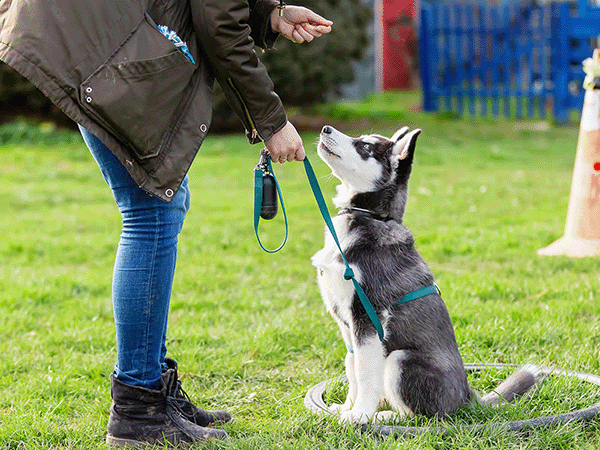
The Best Dog Trainers in the United States of 2025
This is a list of the top dog trainers in the United States, based on votes from the Sniffspot community and the general public.
The Best Dog Trainers in Seattle, WA of 2025
This is a list of the top dog trainers in Seattle, WA, based on votes from the Sniffspot community and the general public.
The Best Dog Trainers in Portland, OR of 2025
This is a list of the top dog trainers in Portland, OR, based on votes from the Sniffspot community and the general public.
The Best Dog Trainers in Los Angeles, CA of 2025
This is a list of the top dog trainers in Los Angeles, CA, based on votes from the Sniffspot community and the general public.
The Best Dog Trainers in New York, NY of 2025
This is a list of the top dog trainers in New York, NY, based on votes from the Sniffspot community and the general public.
City dog parks guides

Top 10 Indoor Dog Parks: A US Guide
Looking for a space to play with your dog no matter what the weather’s like outside? Look no further than our list of the best indoor dog parks in the United States! These climate-controlled spaces are growing in popularity as pet ownership increases throughout the country. As a bonus, many of them also offer dog training, boarding, grooming, or daycare services on the premises.

15 Best Dog Parks in the US: Public & Private
Searching for the best off-leash dog parks near you in the United States? Whether you're looking for public dog parks with open spaces or private, fully-fenced areas, this comprehensive guide has you covered. Discover top-rated parks across the country, plus essential tips on what to bring and what to expect for your next adventure.

Dog Parks Near Me: Las Vegas Edition
Looking for the perfect dog park near me in Las Vegas? You're in luck! This guide explores all the best options for your pup, from public dog parks to private dog parks near me on Sniffspot. We'll help you find the ideal spot for playtime, socializing, and fresh air. Plus, we'll cover essential etiquette and safety tips to ensure a happy visit for everyone. Get ready for some tail-wagging fun!

Top Sniffspot Locations: Find the Perfect Dog Park
Looking for the perfect dog park? Whether you need a wide-open public space or a private, fenced-in spot, this guide will help you find the best dog parks across the US. We'll cover top-rated public parks, the perks of private dog parks, and even explore Sniffspot locations – giving your pup a safe and fun place to play. Ready to find your dog's new favorite spot? Let's go!

Sniffspot: Portland's Best Private Dog Parks
Ready to discover Portland's best dog parks? Whether you're looking for a public park or the unique experience of a private Sniffspot, this guide has you covered. We'll help you find the perfect spot for your pup, with tips on what to bring, how to prepare, and even understanding dog body language. Plus, we'll explore some top Portland dog parks, including public and Sniffspot options, so you can plan your next dog-friendly adventure in the City of Roses.
Dogs breeds

German Shepherd Dog: Breed Facts, Experience and Tips from 9K+ Owners
Discover the German Shepherd Dog, a breed celebrated for its intelligence, loyalty, and versatility. Known for its impressive size and smooth, graceful movements, German Shepherds excel in various roles, including as guide, therapy, bomb detection, and police dogs, while being a devoted family companion.

Labrador Retriever: Breed Facts, Experience and Tips from 9K+ Owners
Discover the Labrador Retriever, a breed celebrated for its playful nature, affectionate temperament, and trainability. Labradors are known for their friendly demeanor and adaptability, making them perfect family companions and versatile working dogs. As one of the most popular types of retrievers, Labs are ideal companions for various lifestyles and are recognized by the American Kennel Club (AKC) as an excellent breed for families.

Golden Retriever: Breed Facts, Experience and Tips from 9K+ Owners
Discover the Golden Retriever, a popular breed celebrated for its affectionate, playful, and trainable nature. Considered a large dog, Golden Retrievers were originally bred in Scotland for hunting and retrieving game beginning in the 1860s. Today, they're recognized by the Kennel Club and the American Kennel Club (AKC) as one of the most beloved companion dog breeds.

American Staffordshire Terrier: Your Complete Guide
Think American Staffordshire Terriers are tough? Think again. While their muscular build might intimidate some, these dogs are known for their playful and loyal personalities. This guide draws on the experience of nearly 10,000 AmStaff owners to reveal the truth about this often misunderstood breed. Want to learn more about caring for an American Staffordshire Terrier? You're in the right place.

Australian Shepherd Facts: Breed Info & Care Guide
Discover the Australian Shepherd, an AKC breed celebrated for its trainable, playful, and affectionate nature. Despite its name, the Australian Shepherd is actually a native breed to the United States, originally developed to breed on farms and ranches. Considered a medium dog, Australian Shepherds were bred for herding beginning in the 1950s. As one of the high-energy breeds, Aussies are known for their boundless energy and need for regular exercise, including aerobic exercise.
Top dog names in the US
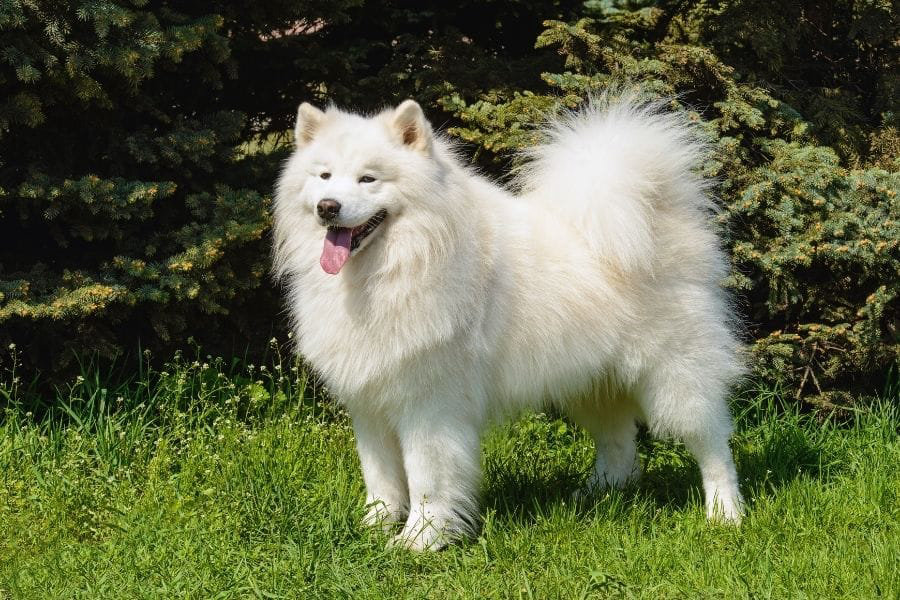
Top 1,000 Most Popular Dog Names
Looking for the perfect dog name for your new pup? We have created filterable lists of dog names from our database of hundreds of thousands of Sniffspot users. You can filter by gender, breed and state to find the most cute, unique and creative dog names.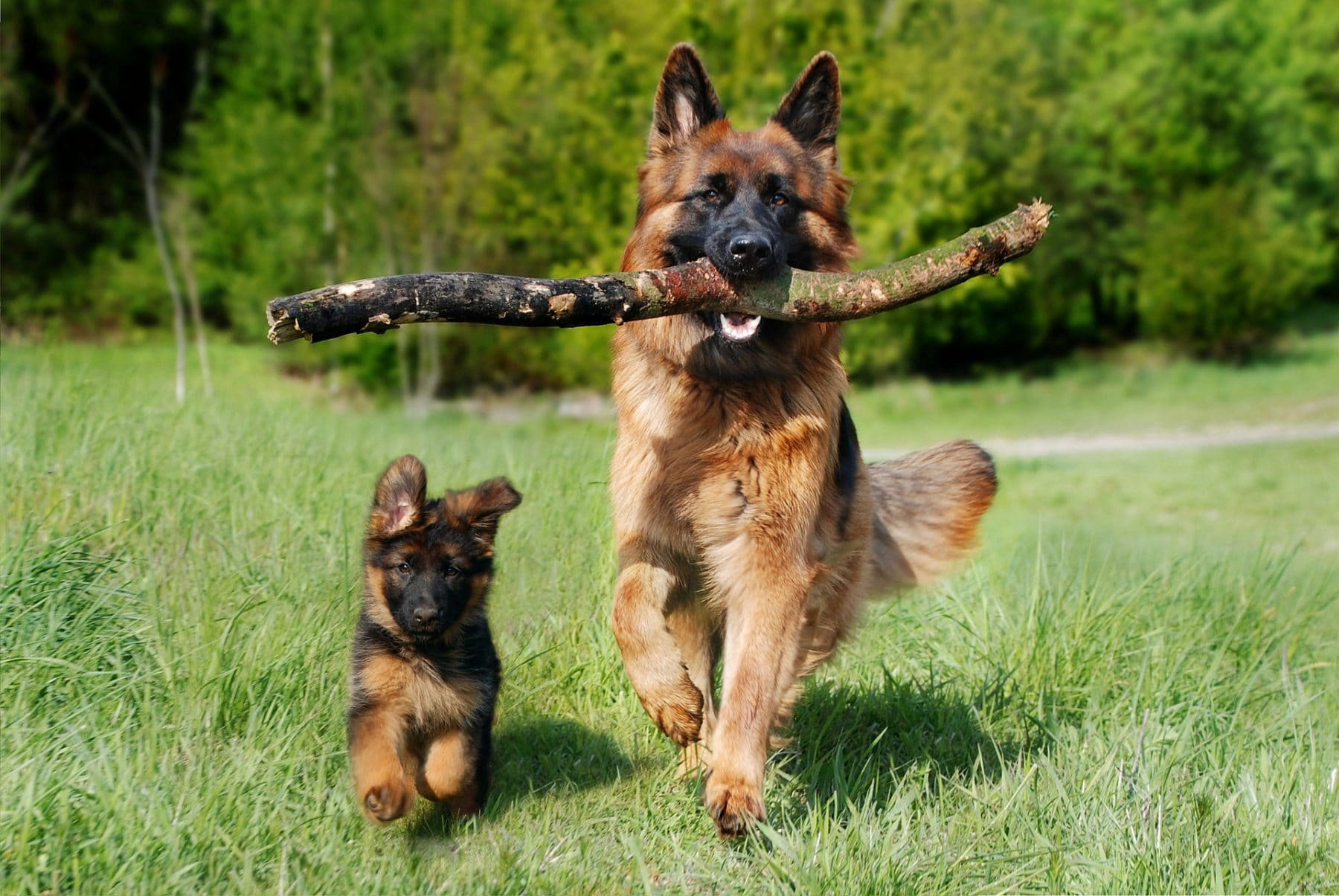
Most Popular Male Dog Names
Looking for the perfect dog name for your new male pup? We have created filterable lists of male dog names from our database of hundreds of thousands of Sniffspot users. You can filter by gender, breed and state to find the most cute, unique and creative male dog names.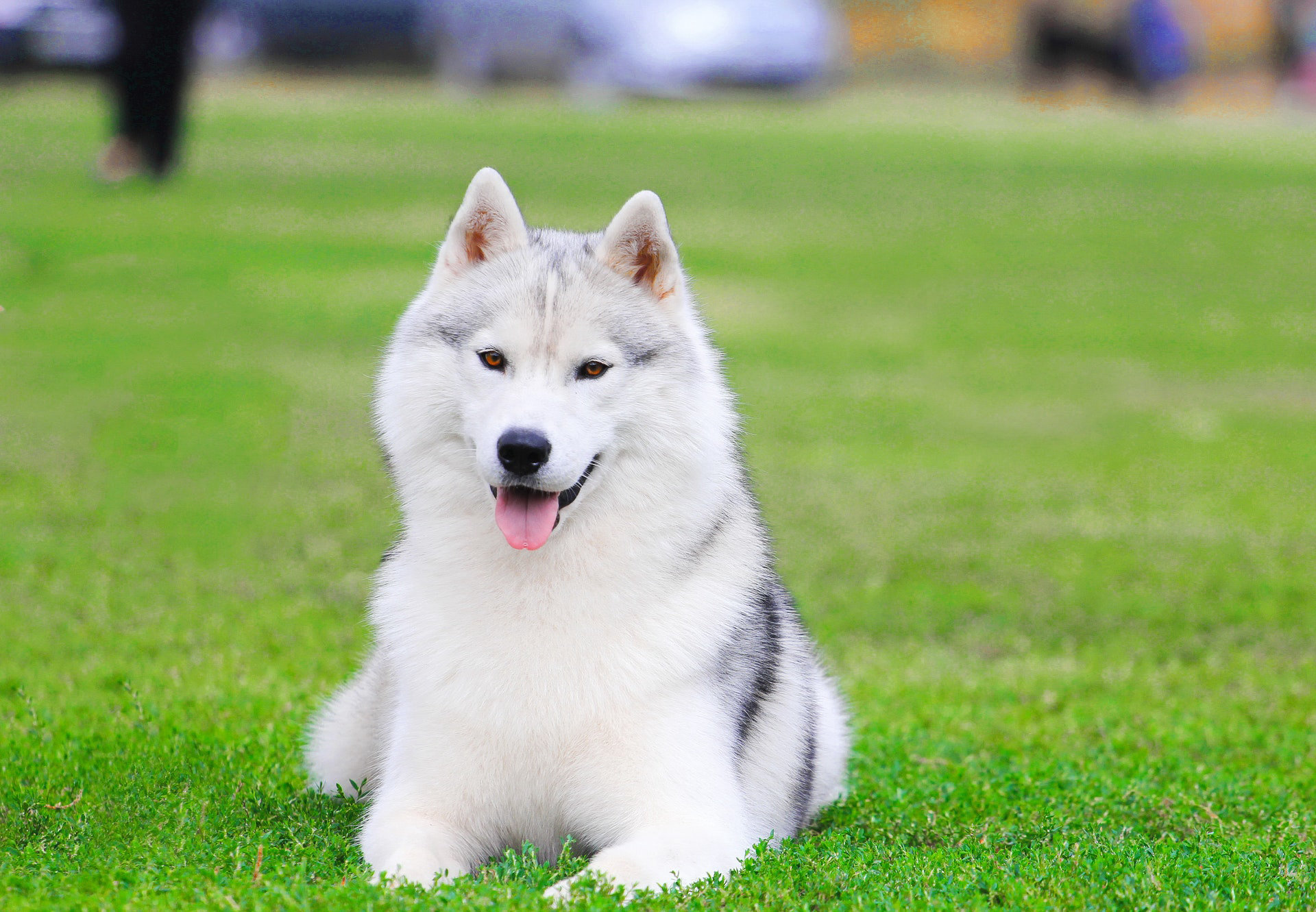
Most Popular Female Dog Names
Looking for the perfect dog name for your new female pup? We have created filterable lists of female dog names from our database of hundreds of thousands of Sniffspot users. You can filter by gender, breed and state to find the most cute, unique and creative female dog names.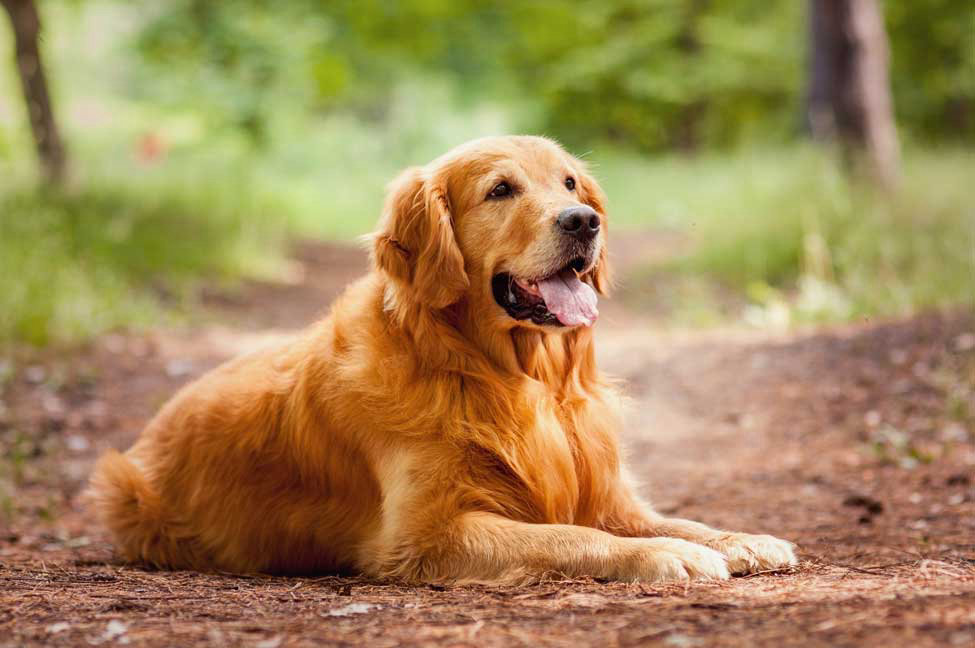
Most Popular Golden Retriever Names
Welcome to our comprehensive list of Golden Retriever dog names, curated from our vast database of Sniffspot users. Filter through hundreds of thousands of options by gender, breed, and state to discover the most adorable, original, and imaginative names for your beloved Golden Retriever.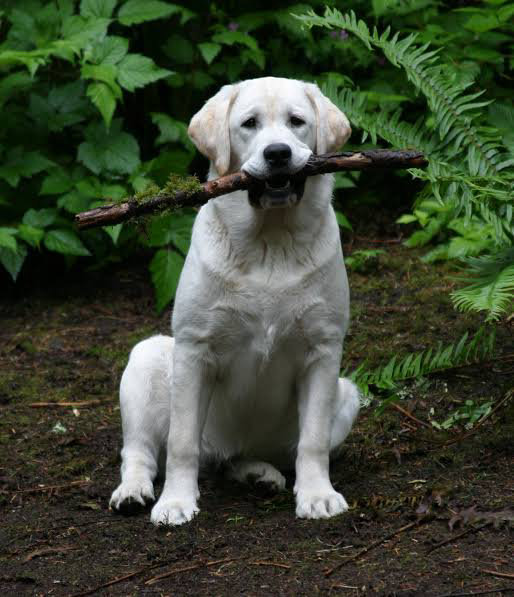
Most Popular Labrador Retriever Names
Welcome to our Labrador Retriever dog names page! Here you can browse through filterable lists of names for your beloved furry friend, ranging from cute and classic to unique and creative options. Our database of hundreds of thousands of Sniffspot users ensures you'll find the perfect name for your Labrador Retriever, whether you're seeking a name for a male or female, based on breed or state.
Top dog rescues in the US

The Best Washington Dog Rescues & Shelters in 2025
This list showcases the top dog rescues & shelters in Washington. These remarkable organizations have been recognized for their unwavering dedication to the well-being of countless dogs.
The Best Oregon Dog Rescues & Shelters in 2025
This list showcases the top dog rescues & shelters in Oregon. These remarkable organizations have been recognized for their unwavering dedication to the well-being of countless dogs.
The Best California Dog Rescues & Shelters in 2025
This list showcases the top dog rescues & shelters in California. These remarkable organizations have been recognized for their unwavering dedication to the well-being of countless dogs.
The Best Florida Dog Rescues & Shelters in 2025
This list showcases the top dog rescues & shelters in Florida. These remarkable organizations have been recognized for their unwavering dedication to the well-being of countless dogs.
The Best New York Dog Rescues & Shelters in 2025
This list showcases the top dog rescues & shelters in New York. These remarkable organizations have been recognized for their unwavering dedication to the well-being of countless dogs.










